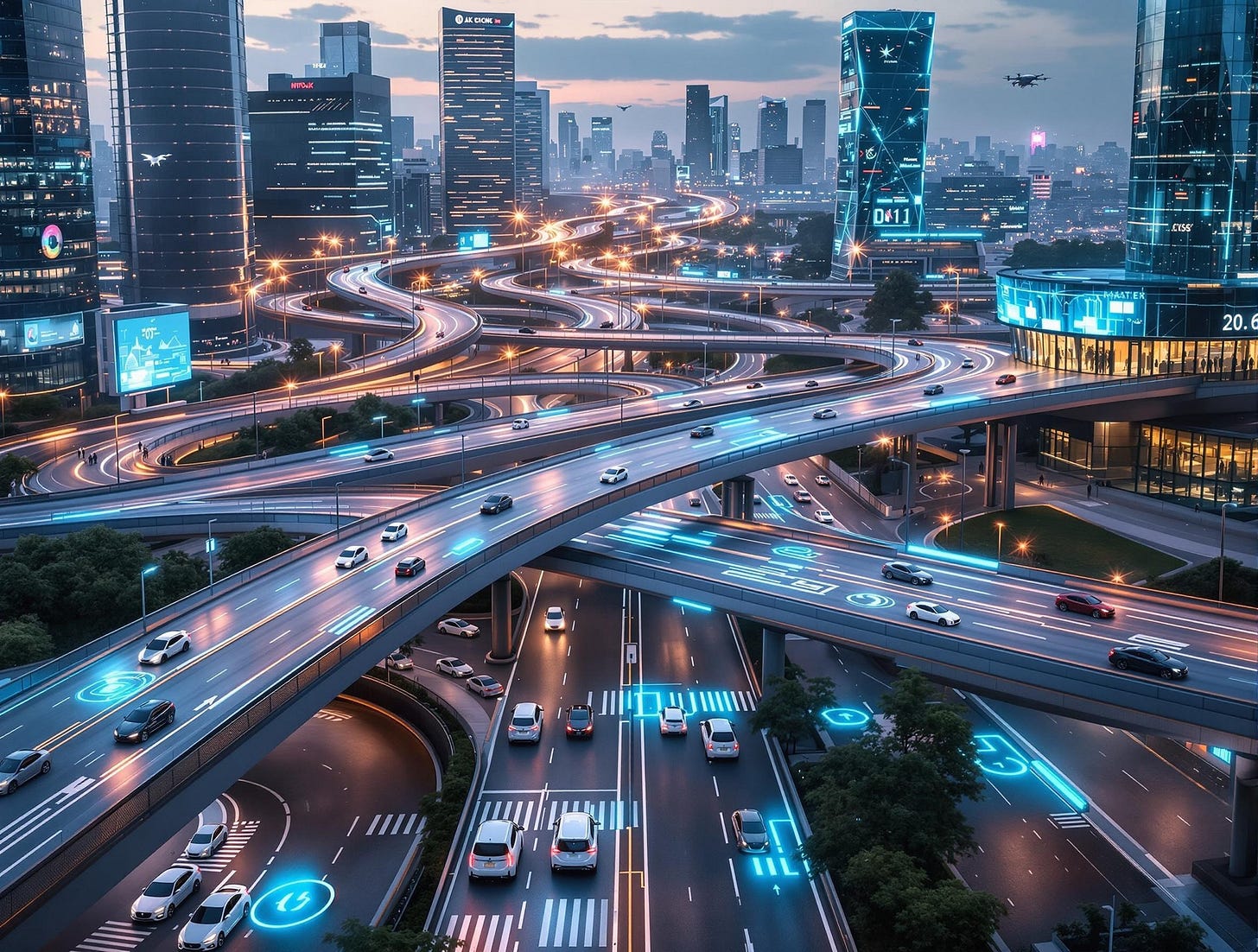AI Revolutionizes Traffic Management: A New Era of Smart Transportation
In an increasingly urbanized world grappling with traffic congestion and transportation challenges, artificial intelligence (AI) is emerging as a game-changing solution. A new research report by Ritwik Raj Saxena from the University of Minnesota delves into the transformative potential of AI in traffic systems, offering a comprehensive look at how this technology is reshaping urban mobility.
As cities expand and vehicle numbers surge, traditional traffic management methods are struggling to keep pace. Enter AI, with its ability to process vast amounts of data, learn from patterns, and make real-time decisions. This technology is not just enhancing existing systems; it's completely revolutionizing how we approach traffic management.
Saxena's report highlights several key areas where AI is making significant inroads:
Intelligent Traffic Signal Control: Gone are the days of fixed-time traffic lights. AI-powered systems can now adjust signal timings based on real-time traffic conditions, reducing wait times and improving flow.
Predictive Analytics: By analyzing historical data and current conditions, AI can forecast traffic patterns and potential bottlenecks, allowing for proactive management.
Incident Detection and Response: AI algorithms can quickly identify accidents or road hazards, enabling faster emergency response and traffic rerouting.
Smart Parking Systems: AI-driven parking management helps drivers find available spaces more efficiently, reducing congestion caused by circling vehicles.
Public Transportation Optimization: AI can enhance route planning and scheduling for buses and trains, improving service reliability and passenger experience.
One of the most exciting applications of AI in transportation is the development of autonomous vehicles (AVs). These self-driving cars, equipped with advanced sensors and AI algorithms, promise to revolutionize road safety and efficiency. While still in development, AVs represent the cutting edge of AI's potential in traffic management.
The benefits of integrating AI into traffic systems are manifold. Cities can expect reduced congestion, fewer accidents, lower emissions, and more efficient use of road infrastructure. For individual travelers, this translates to shorter commute times, less stress, and improved overall quality of life.
However, the road to AI-powered traffic management is not without its bumps. Saxena's report acknowledges several challenges that need to be addressed:
Data Privacy and Security: As AI systems rely on vast amounts of data, ensuring the privacy and security of this information is crucial.
Infrastructure Integration: Implementing AI solutions often requires upgrading existing infrastructure, which can be costly and time-consuming.
Public Trust: Gaining public acceptance of AI-driven systems, especially in safety-critical applications like autonomous vehicles, remains a significant hurdle.
Ethical Considerations: As AI makes decisions that affect human lives, addressing potential biases and ensuring fairness in algorithms is essential.
Despite these challenges, the potential benefits of AI in traffic management are too significant to ignore. Cities worldwide are already beginning to implement AI-powered solutions, with promising results.
Looking ahead, the future of AI in traffic management is bright. Saxena envisions more comprehensive, powerful, and environmentally sustainable systems. These future AI applications could include:
Advanced traffic forecasting that considers multiple factors like weather, events, and seasonal patterns
Personalized travel assistance that provides tailored route recommendations based on individual preferences and real-time conditions
Seamless integration of various transportation modes, creating a truly interconnected and efficient urban mobility ecosystem
As we stand on the brink of this transportation revolution, it's clear that AI will play a pivotal role in shaping the cities of tomorrow. By embracing these technologies and addressing the associated challenges, we can look forward to smarter, safer, and more sustainable urban environments.
The journey towards AI-powered traffic management is just beginning, but the destination promises a future where gridlock is a thing of the past, and efficient, stress-free travel is the norm. As research like Saxena's continues to push the boundaries of what's possible, we can expect to see increasingly sophisticated and effective AI solutions transforming our roads and cities in the years to come.



